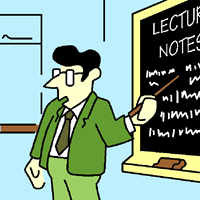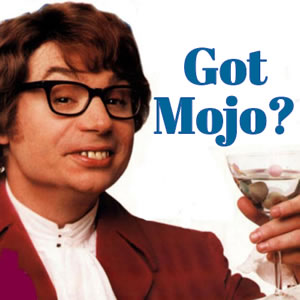Writing is my passion and my livelihood.
This is why it’s important for me to join a writer’s workshop as I consider it both as a treat to myself and a career investment.
Going to a three day workshop allows me to have a break from the daily stream of news that passes through my inbox (I work as an editor for an international news agency in Manila).
At the same time, I can improve and even learn new skills, keeping me ahead in a very competitive media industry.
Any professional writer – whether you’re a newspaper reporter, a freelance copy writer or a staff blogger – can benefit from attending a writers workshop. But to make the most out of it, you may want to know why you’re committing time and money to go there.
Only you know your level of competence and field of interest. So before you sign up or pay that 10% deposit, ask yourself first what you want to get out from this workshop.
Let’s say that you’re a travel writer, so ask yourself do you want to attend a workshop because you want to write a novel based on your travels? Or perhaps, you want to go into travel journalism and want to know how to pitch stories to a magazine editor?
You need to be specific as there are many workshops catering to all types of writers. Travel Writers Exchange has in fact listed several workshops catering to travel writers (and there are more out there if you google for it).
Once you’ve figured out your intention, and have chosen a specific workshop that fits your schedule and budget, then the next step is to contact the workshop facilitator and request the syllabus. This will give you an idea of what will be covered in the workshop and whether it will match your personal intention.
It’s such a waste of time and money joining a workshop where you won’t find anything that will cater to your needs as a writer.
Just to illustrate, I used to work as an editor in a glossy magazine. One day, the magazine publisher announced that the company is sponsoring an editing and writing workshop. I went there because I’m a sucker for anything free. But I was also lazy and this cost me a lot, in terms of wasted time.
Why? Well, I didn’t even bother requesting the syllabus from the workshop facilitator. She was the company’s training manager and her desk was a few steps away from my desk. I could have talked to her for about five minutes and this simple conversation would have spared me the agony of listening to editors who droned for five hours, lecturing on the basics of writing and editing. That would have been ideal for new grads and newbie writers who wanted to pursue a career in the magazine industry. But it’s useless for someone like me who’s been a business journalist for more than a decade and whose career plans don’t include penning a ‘how to guide’ on dating and buying expensive shoes (which is what a lot of these stupid women’s magazines contain. Ok, I’ll stop ranting now.)
Apart from the the syllabus, I will also advise that you check if there are writing exercises, what they are, and if there’s an opportunity for you to consult your facilitator about the project you’re working on (it may be the first chapter of your memoir in the making or a feature article that you want to submit to an online publication). Talk to the facilitator about it, and if possible, ask former workshop participants for feedback.
A workshop is a way for writers to do “deliberate practice” (to borrow a phrase from Malcolm Gladwell), honing a skill which may have been rusty because you might be doing other things for a living.
If you learned the workshop is nothing more than another lecture on comparative literature, then I suggest that you ditch it and save your money.
After you did your research, then be sure pack some recording stuff (audio/video recorder). Aside from holding writing exercises, workshop facilitators usually share pointers on how to brainstorm to get new ideas, cope with the dreaded writer’s block, or how to pitch story ideas to editors. It will be difficult for you to absorb everything so it’s better that you record it, store it in your computer or MP3 player and give yourself a refresher course wherever, whenever. But please ask the facilitator first if you can record the whole proceedings. Video cameras are especially distracting.
Also treat the workshop as another venue for networking and forming a support system. Writing is such a solitary activity that it helps if you can find a writing buddy, a mentor or even an editor who can give you job leads.
Best of all, keep yourself focused and upbeat during the workshop. It’s difficult to get any writing done if you’re hungry, ill or sleepy.
Get enough rest (for me that means about seven hours of sleep), eat a healthy and hearty breakfast (have some fresh fruit, whole wheat bread or muesli, a good cup of coffee) and if you’re so inclined, meditate and do some asanas before you sit up for another day of writing exercises.
~ Prime
How do you get the most from a writing workshop? Share your advice!






I have never been to a writing workshop, but when I do, I will keep in mind your excellent tips! :)
.-= Maria Staal´s last blog post: My Manuscript Is Being Critiqued =-.